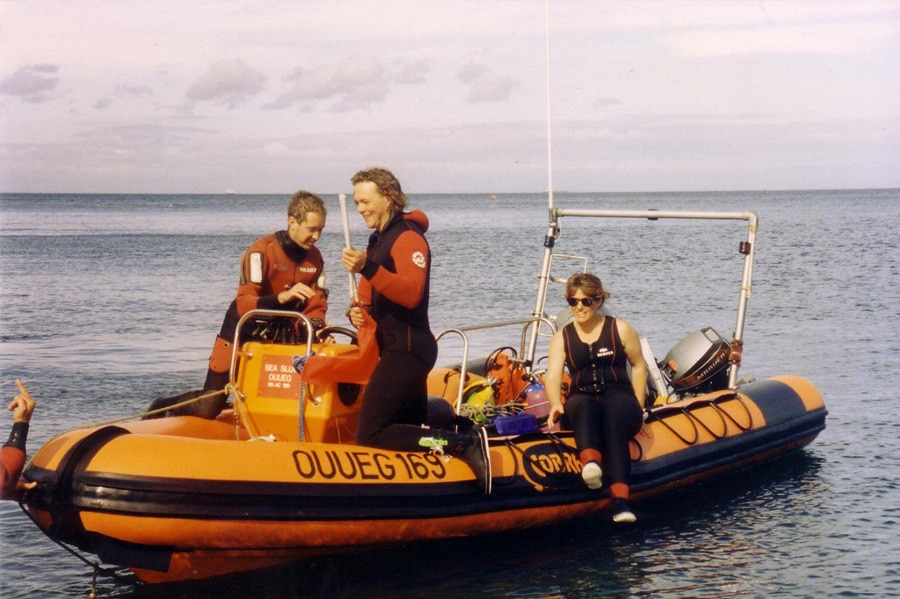Tell us a bit about yourself – what was your PhD about and where did you study?
I did my DPhil in the school of education at Oxford University, and it looked at how geography teachers taught controversial environmental issues in sixth form geography lessons. I spent a lot of time hanging out in schools and observing teaching and I interviewed teachers and pupils to find out how they interpreted classroom discussions. What I found was that teachers really wanted to be balanced or neutral when teaching about controversial issues but that this was really difficult if they had strong views on the subject. This meant that their views were often expressed in the classroom, albeit often indirectly for example by using rhetorical questions or by controlling turns to speak when chairing a student discussion. It was really interesting and got me thinking about the hidden curriculum, something which has fascinated me ever since.
What do you do now? What did you decide to do next after gaining your PhD?
Well straight after my doctorate I was rather busy because I had a baby during my final year! I went on to have another and stayed at home for a while to look after them. Then I taught evening classes which was great but really hard work after a day looking after kids. So I applied for a job as a research assistant, interviewing staff who did research into teaching and learning in higher education and setting up a database so they could contact each other. This led to a career in Educational Development, which was focused on trying to improve teaching in universities using pedagogic research findings. I had a third baby(!), helped set up a research institute in pedagogy, was made a professor and awarded a national teaching fellowship. I led the Educational Development team at the University of Plymouth until last year when I moved to be Director of Academic Practice and Professor of Higher Education at Plymouth Marjon University. In this role, I have various responsibilities but they include coordinating PhD students in education. I help recruit new students, and also support supervisors and students with the big transitions in the PhD journey. Supervising and examining PhDs has always been one of my favourite parts of the academic role so this job is perfect! I also have more time for my own research which is mainly in sustainability education.
Has having a PhD helped in developing your career? If yes, what has been the biggest impact? If no, why do you think that is?



What’s one piece of advice that you’d offer prospective students considering a PhD?
I won’t offer advice about *why* to do a PhD, since I’d feel hypocritical. I chose to do a doctorate because I was working in Oxford and was in the University scuba diving club so I knew a lot of PGR students – and it seemed like more fun than my job! But I would strongly suggest that you pick a topic you’re really interested in. By the end of 3 or 4 years, you are likely to be heartily sick of it either way, but it does help if you are really interested at the start! I also tried to follow a routine – 9 to 5 or so every week day. This helped manage the work but also for me it helped manage the stress of always feeling like I should be working – evenings and weekends – as there was always something to do.
And what one thing would you suggest that new PhD graduates should do next?
For new PhD graduates, I wish you luck. The job market is really tough, so don’t lose hope if you don’t instantly get the job of your dreams. I’d also say think quite widely about what you might do. I would never have set out to be an educational developer, for example, but it’s led to a tremendously rewarding career. In practical terms (if you are looking for an academic post), I’d say write papers if you haven’t already, try to get teaching experience, and also think about social networking to raise your profile as it can really help if your name is known.


Lastly, what’s your favourite memory from your time as a PhD student?
Aside from many happy memories of scuba diving trips, my favourite work-related memories are from my time in schools. It was an absolute honour to be allowed into the classroom and observe lessons and I can still remember the feeling when I first started my data collection of how difficult it was to ‘make the familiar strange’ – to see something beyond the lesson that the teacher had planned, to think like a researcher and not like a pupil. But I also had a lot of fun – I presented my research at an international conference, won a prize for the best paper, met people I’d cited in my work, and made friends for life!
Want to know more about Debby?
Follow her on Twitter and check out her university and consultancy websites using the links below:

